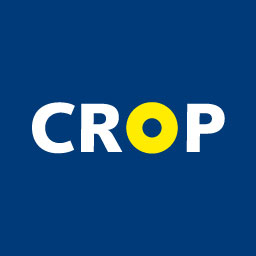ATAD3 Directive
On 22 December 2021 the European Commission published the ATAD3 Directive proposal. The ATAD3 Directive focuses on the misuse of shell entities. More specifically, the ATAD3 Directive introduces reporting obligations for entities having mainly passive income and outsourcing certain operations and functions, establishes minimum substance requirements for these entities and imposes sanctions, in particular the denial of tax benefits under tax treaties and EU Tax Directives, on entities not meeting these requirements.
The ATAD3 Directive should be implemented in domestic law ultimately by 30 June 2023 and be effective in all Member States from 1 January 2024. The reporting obligations will be assessed based on the operations of the entity during the two years preceding the year of reporting. Hence, it will be crucial for taxpayers to evaluate the potential impact of the ATAD 3 Directive based on their current operational set up and make adjustments if required to align their operations with their investment and holding structures.
Entities concerned
The ATAD 3 Directive will only apply to an entity if it cumulatively meets the following “gateway criteria”:
- the entity’s income has been at least 75% passive (such as interest, dividends, royalties etc.) in the preceding two years;
- the entity’s activities are at least 60% cross-border (based on the book value of certain assets or of the income deriving from cross-border transactions); and
- the management and administration of the entity concerned has been outsourced to third parties in the two preceding tax years.
Entities covered by specific exceptions (such as listed companies, collective investment schemes, domestic holding companies and entities with at least 5 FTEs, etc.) are not required to assess whether the gateway criteria are met.
Substance and reporting requirements in tax return
Entities that meet all “gateway criteria” must declare in their annual tax return whether they meet the following cumulative three minimum substance indicators:
- the entity has its own premises in the EU or premises for its exclusive use;
- the entity has at least one active and own bank account in the EU; and
- the entity has its own appropriate qualified resident managers/directors or employees (i.e., a manager/director should be able to take decisions independently and cannot have the same functions at the level of other unrelated companies).
The entity is required to support the reporting obligation with evidence (such as the address of the premise, the bank account number etc.), so that the relevant tax authorities can verify the presence of substance indicators. If the entity meets the minimum substance requirements and includes the necessary evidence in its tax return, there will be no further consequences.
Not meeting the minimum substance requirements
If an entity does not meet the cumulative substance indicators (or fails to provide evidence), it’s assumed to be a shell entity. However, this entity will be given the opportunity to provide evidence by substantiating commercial and non-tax reasons for establishing in a Member State and therefore argue that it should not be considered a shell company. If evidence to the contrary or exemption is successful, the relevant tax authority validates this. The approval is valid for one year but can be extended for another five years if facts and circumstances remain unchanged. It is still unclear whether the other Member States are bound by the approval. In this regard, the other Member States can request the tax authorities to carry out a tax audit on the shell entity.
Tax consequences and penalties
In case of non-compliance with the minimal substance requirements or new reporting obligations the following sanctions / penalties might be imposed:
- The benefits derived from EU Directives and tax treaty benefits will be denied.
- The entity is no longer eligible for a tax residence certificate in the Member State or such certificate is accompanied by a warning. In that case taxing rights will be assigned to the shareholder of the shell entity in the following manner:
- If the shareholders of the shell entity are resident in the EU, the income paid by the payer to the shell entity must be included in the taxable base of the EU based shareholders, as if the income was earned directly and may be able to claim relief for any tax paid at the source, including by virtue of EU Directives. It will also take into account and deduct any tax paid by the shell entity.
- If the shareholders of the shell entity are not resident of the EU, the Member State of which the payer is a resident should apply a withholding tax under its domestic law on income paid to the shell entity. At the same time the third country shareholder jurisdiction is not compelled to apply any consequences, it may consider applying a treaty in force with the source jurisdiction in order to provide relief.
If entities do not comply with the reporting obligation, a penalty of at least 5% of the annual turnover of the entity can be imposed.
Action
Businesses should take a critical look at their structures in order to identify any entities that may be considered to lack economic substance and be impacted by the implementation of the ATAD 3 Directive. It is also worth noting that the ATAD 3 substance test includes a look-back period of the preceding two tax years, meaning that should the ATAD 3 Directive come into effect in 2024, the position of an entity as of January 2022 may be taken into consideration. As such, it is imperative that action is taken now to avoid any unforeseen compliance issues. Therefore, we strongly advise you to assess in time whether the ATAD3 Directive has consequences for your businesses.
CROP has an International Tax team who is available to help you in your assessment of the impact of the ATAD 3 Directive for your structures and business operations. We will keep you informed of any further developments.

